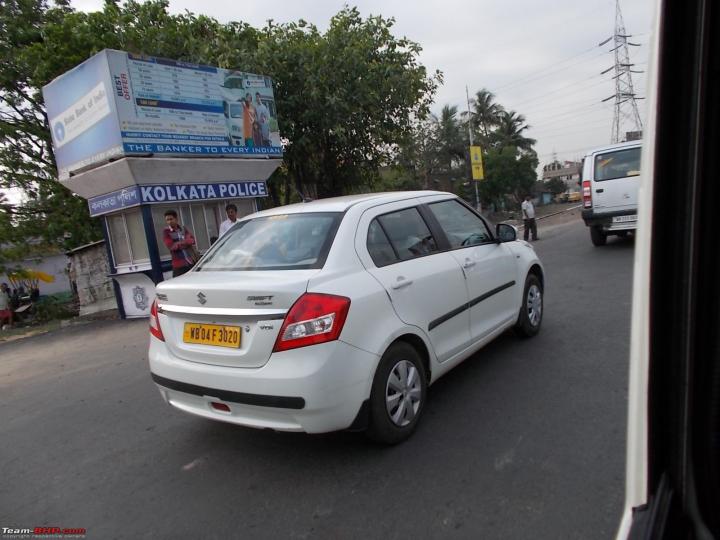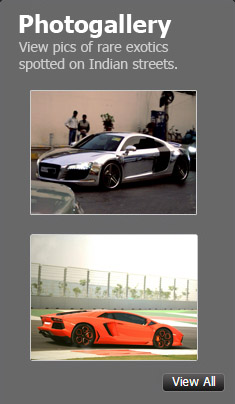News
Is a taxi test a good way to gauge reliability & durability of a car
Most of us typically use our cars for about 10000 kms a year give or take.
BHPian Auto_guy_101 recently shared this with other enthusiasts.
Hey BHPians,
Most of us typically use our cars for about 10000 Kms a year give or take and one of the biggest concerns we have while buying a car, especially in the 10-40 Lakh price bracket is its reliability and long term ownership cost. However, the next time you take a cab, just have a look at the odometer and ask the driver how much maintenance costs.
I would like to call this the Taxi test of the car. Through this thread, I would love to understand from you all
Is this a sensible way of assessing fuss-free and cheap ownership?
Have you come across any cars in the 10-40 L range (other than an Innova) as a taxi? How was your experience? If you've asked the driver about their ownership experience, do add them too.
Hypothetically understand why some cars in this range would be a great/ terrible taxi
If you had an option to travel in say a petrol Thar or Fortuner as a Taxi, how much would you be willing to pay for a 30-40 Km ride?
Why do I feel such a test of a car is important?
Some brands (Suzuki, Hyundai, Toyota) are known to be super reliable. Ask the driver of a 1.5 L Km Suzuki Dzire and he will say "Maruti ki gaadi hai. Koi issue ni ayega" (Maruti vehicles have bulletproof reliabilty). However, some brands have a speciality of being unreliable, like Jeep, VW, Skoda, especially in India. If, lets say 5-10 Virtus's are being run as Taxis in metro cities (through some marketing scheme) and the driver, passenger feedback is collected, over a period of 5-6 years, we will have information on how those cars will fare in the longer run. We can understand when a clutch can fail, when brake pads wear out, when the suspension needs to be overhauled or when the turbo would go Kaput through this test.
I have come across the Honda city, VW vento and a Creta in the Taxi guise, but haven't travelled in them.
Here's what GTO had to say on the matter:
The taxi car buyer is an astute car buyer. After all, his life depends on the car...literally. Generally speaking, I will agree that the "taxi test" is a good way to gauge reliability & durability. See the top taxi models today = Innova Crysta, WagonR, Dzire, Ertiga etc.
On the other hand, it cannot be taken blindly and by itself. There are also some duds among taxi models from time to time. The Indica (hardly a paragon of reliability) was bought by cabbies only because it was cheap + diesel + spacious.
But generally, yes. I would say that commercial car buyers (including cabbies) choose their model wisely based on uptime & reliability. Unlike private car buyers where other factors come into play (including prestige).
Here's what BHPian Mortis had to say on the matter:
I would say it's not an entirely useful metric to go by. The taxis might be running and functioning after X km but the question for us car owners is - are they running WELL ?
Is the engine and gearbox still smooth? Is the suspension still working to it's normal standards ? How have the interiors and electronics held up ? How are the body panels doing and how rusted is the chassis ?
All these things matter for private car ownership. I'm going to say something controversial - the average taxi driver only cares if the car is driveable and they are getting decent mileage. All other parameters just need to be in the acceptable/usable range.
Here's what BHPian ashis89 had to say on the matter:
These discussions can be misleading. If a taxi owner has bought a car and held on to it for long, they will continue driving it whether they’re happy with it or not. They will also maintain it, by any means.
Some of the discussions that I had over the years:
Owner of a 4L km run Indica but in good condition was very proud of his car and it’s minimal upkeep needs. Others with Indicas falling apart in 2L kms are equally happy about their robust cars.
A Zest owner mentioned that Tata MJD spares/consumables slightly more expensive but his car is more durable than a Maruti, comfortable and was cheaper to buy. Another Zest owner used to service his car every 20k kms and it was still running well!
Etios owner was proud that it’s a Toyota after all. Durable and cheap to maintain. It had a shot lower arm.
A couple of Innovas that we hired from Guwahati mentioned that the suspension lasts 1.5-2L kms but clutch need replacement 40k-60k kms due to usage on the hills. One specimen was 6 months/20k kms old, other one was 3.5L kms old.
Maruti owners are happy about low spare costs and easy service. But my Uber last week was a wheezy Dzire CNG one. It had run 1.5L kms, had shot clutch probably and was stuttering badly at low revs. That was surprising as the car looked well cared visually and the driver kept wiping the mirrors during traffic jams. My regular operator’s fleet of Ciaz diesel and petrol are in showroom condition and some have done 1.5L+ kms already.
To summarise, the data can be as diverse as possible. The reference point can also be different unless we get to drive the different cars to under the mechanical state they’re in. Most owners prefer getting their cars serviced at their preferred FNGs. Some prefer used parts or compatible versions if available. And I haven’t come across any owner/driver who has said their car is bad or has a flaw. If there is then they have found a workaround or wouldn’t share it.
Here's what BHPian Shreyans_Jain had to say on the matter:
A lot of it is based on local laws as well. Here in Delhi NCR, a taxi has to be CNG or electric, and aftermarket CNG conversions are not permitted. Automatically, the market gets restricted to factory fitted CNG cars, which basically means WagonRs, Dzires, Ertigas, Xcents and the occasional Tigor.
The only common thing between these vehicles is that they are usually in very bad shape. Noisy and whiny engines, lousy suspensions, sagging seats and unkempt cabins, these cars age poorly. Just not good enough for commercially ferrying people, surviving solely because there are no better quality options out there. BluSmart has seen this, and has jacked up the prices of their EV cars. Better kept vehicles, smoother and wayyyy more refined, and overall a better experience. Especially their MGs and BYDs.
Here's what BHPian 14000rpm had to say on the matter:
Taxi's are a very good source of real-world data leading to Quality improvements. Some examples below. Now, given that I am citing Expensive cars as examples, it may not lead to answer Cheap ownership from India context.
Example 1 - Long time ago, my Airport Transfer taxi in Munich was a Mercedes E Class. The driver was, for a change, English speaking. Asked him the basic question I had been meaning to ask - Why Mercedes?
He cited his person experience. This was his second E Class. The 1st E Class was his first ever and he had driven it for a little over 1 Mn kms around which time the gearbox failed and the cost of replacing was over the value of the car. Nothing else had broken. If not for the GB failure, he would've put a few more 100k's on the odo.
According to him, a Mercedes has a very high reliability leading to very little downtime. Mercedes, as I've been told, collects real-world usage data and uses it back to improve quality.
Example 2 - Tesla. I ride many Tesla Taxi's. The common issues that I see on high mileage Tesla's are very high rumbling noise from the motors and squeaky interior trim. Although Tesla's don't need to be at service often, their response time for parts is quite slow and cost of components are very expensive I'm told. Therefore, many drive around despite there being issues. I've spoken to folk that drive Tesla's across many year models. There doesn't seem to be an effective feedback loop towards product quality. Even if there is, I'm not sure it is translating efficiently to the quality.
Mercedes, being the Veteran is using Taxi's as a test bed, is giving 2 yr unlimited miles zero-cost maintenance package for the EQE and EQS taxi's. This is Mercedes way of using data from Power users like Taxi's back to product quality team.
Here's what BHPian RD410 had to say on the matter:
I started my career as a mechanic helper (to gain some experience for our famed MVD test ). The workshop where I used to work was a regular for Taxi drivers and Govt. vehicles / police vehicles. Apart from the reliable Innova's, Dzire's, Etios's the other surprisingly reliable cars that I encountered were Tata Indica/Indigo, Mahindra Renault Logan, Bolero, Xylo, Scorpio, XUV500 and Tata Sumo. Especially those Mahindra 2.5/2.6 crde, 2.2 MHawk and Tata 3.0 Dicor engines were outstandingly reliable. But there's a catch. Since a Taxi is means for their livelihood, the owners of these cars are very strict with their maintenance. They meticulously service their cars every 10k kms and replace each and everything that's needed to be replaced. So I think a car being reliable as a Taxi doesn't mean that it will be reliable for private use. Most Indian vehicles are already pretty durable, reliability mainly depends on their upkeep.
Never encountered any VW or Skoda used as a Taxi. But the lower variants of these were used as rental cars by my employer and thsoe were mostly reliable, but not cheap to maintain.
Check out BHPian comments for more insights and information.



















